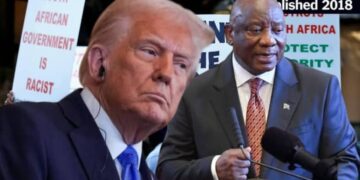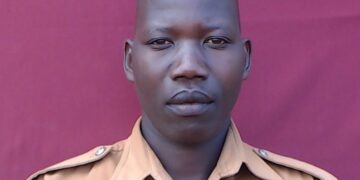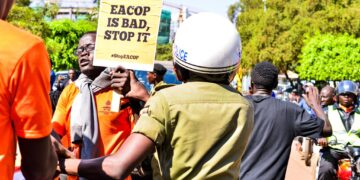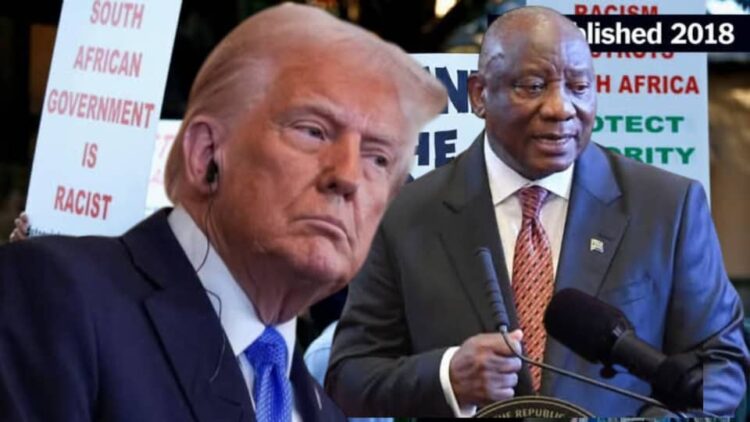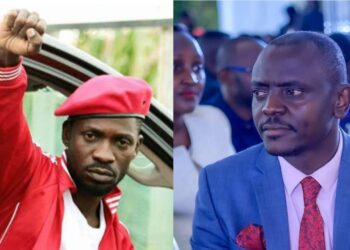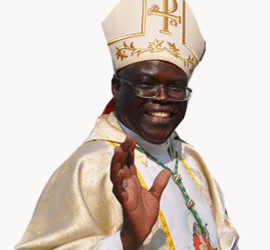By Leonard Kamugisha Akida,
WASHINGTON
President Donald Trump on Friday ordered a halt to all U.S. foreign assistance to South Africa and announced plans to prioritize the resettlement of white “Afrikaner refugees” in the United States. The decision, which Trump said was a response to the South African government’s alleged “racially disfavored” treatment of landowners, has drawn global criticism and intensified diplomatic tensions between the two nations.
In his executive order, Trump declared that “the United States shall not provide aid or assistance to South Africa” and directed American officials to facilitate asylum for Afrikaners who are “victims of unjust racial discrimination.”
The move follows Trump’s recent social media accusations that the South African government is engaged in a “massive Human Rights VIOLATION.” He has repeatedly claimed—without evidence—that white farmers in South Africa face systemic persecution.
Tensions Over Land Reform Law
Trump’s executive order is in response to South Africa’s recently enacted Expropriation Act, which allows the government to acquire privately held land without compensation under certain conditions. The law, signed by President Cyril Ramaphosa last month, aims to address historical land disparities rooted in apartheid-era policies.
For decades, white South Africans—who constitute only 7% of the population—have controlled a disproportionate share of the country’s farmland. The new law seeks to accelerate land redistribution efforts that have long been criticized as slow and ineffective.
While the South African government insists the law is a necessary corrective measure, Trump and some far-right groups have labeled it as a racially motivated land grab.
South Africa Pushes Back
Ramaphosa struck a defiant tone in his State of the Nation address on Thursday, appearing to respond directly to Trump’s accusations.
“We will not be bullied,” Ramaphosa said. “We will speak with one voice in defense of our national interest, our sovereignty, and our constitutional democracy.”
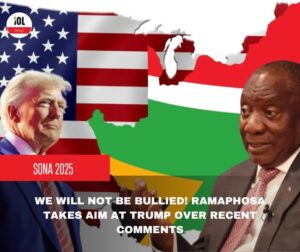
South African officials have dismissed Trump’s claims as misinformation and argued that the Expropriation Act is being mischaracterized to fuel conspiracy theories.
Trump’s decision to cut aid marks a dramatic shift in U.S.-South Africa relations. In 2023, the U.S. provided over $400 million in assistance, much of it dedicated to combating HIV/AIDS. The South African government has warned that the withdrawal of American support could undermine its public health efforts.
Beyond aid, the diplomatic rift threatens broader economic ties between the two countries. South Africa remains one of the largest U.S. trade partners in Africa, and Trump’s policy shift could have significant economic consequences.
Trump’s executive order also raises questions about his broader stance on immigration. While he has previously sought to restrict refugee admissions from conflict zones and developing nations, his latest directive carves out a special exception for white South Africans.
The decision has fueled accusations of racial bias in U.S. immigration policy. Critics argue that prioritizing white South African refugees while turning away asylum seekers from Latin America, the Middle East, and Africa is a clear example of selective humanitarianism.
The president’s actions align with claims made by influential figures in his orbit, including billionaire Elon Musk. Musk, who was born in South Africa, previously promoted unverified claims of a “white genocide” in the country. His social media posts echo narratives pushed by far-right groups, despite official crime statistics disputing such allegations.
Ernst Roets, executive director of the Afrikaner Foundation, welcomed Trump’s intervention but cautioned against the blanket withdrawal of U.S. aid. “While we have raised concerns about the government’s policies, we did not call for sweeping sanctions,” Roets said.
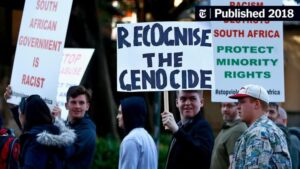
Trump’s move has sparked international condemnation. The United Nations and human rights organizations have criticized his stance as inflaming racial tensions. Some analysts warn that U.S. intervention in South Africa’s domestic affairs could set a dangerous precedent.
As South Africa weighs its response, the suspension of U.S. aid is expected to deepen political and economic uncertainty. Meanwhile, Trump’s promise to resettle white South Africans will likely face legal and logistical challenges, as existing U.S. refugee policies do not explicitly recognize economic displacement as grounds for asylum.
With diplomatic relations strained and debate raging, the long-term implications of Trump’s decision remain uncertain. But one thing is clear: his actions have reignited a global conversation on race, land ownership, and the legacy of apartheid in South Africa.
